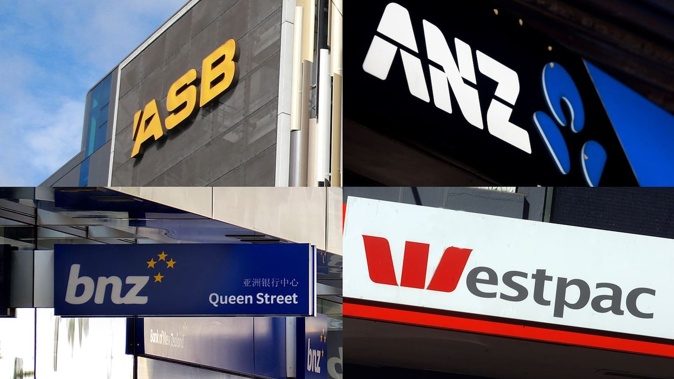
A “stable two-tier oligopoly” with Kiwibank stuck in the middle - this is how the Commerce Commission is characterising the state of the country’s banking sector.
The competition watchdog has just released a draft report on the big market study the Labour Government commissioned it to do.
The Commerce Commission concluded the big four Australian-owned banks - ANZ, ASB, BNZ and Westpac - enjoy sustained high levels of profitability compared with their global peers.
The second tier of smaller banks really struggle to compete with the big ones, which don’t even really keep tabs on what the little guys are doing.
State-owned Kiwibank sits somewhere in between the two tiers, imposing some constraint on the major banks.
The Commerce Commission reiterated what is already well known to the Government - Kiwibank needs more capital to grow to become a meaningful disrupter in the sector.
Beyond this, many of its recommendations related to how controversial regulatory settings could be tweaked to help existing smaller banks grow, and financial technology firms take off.
The commission suggested the Reserve Bank (RBNZ) reviews the relatively stringent capital requirements it imposes on banks to “ensure they are competitively neutral and smaller players are better able to compete”.
It said this “may include levelling the playing field when it comes to the capital required to be held for some types of home loans”.
While the RBNZ’s capital requirements are seen as the fence at the top of the cliff, preventing banks from collapsing, a new deposit insurance scheme is being designed to be the ambulance at the bottom, to compensate depositors a limited amount should their deposit-taker collapse.
The Commerce Commission urged the Government to design the scheme, due to be implemented mid-next year, with its effect on competition in mind.
The issue currently being debated in the industry is around the extent to which deposit takers should pay levies to the scheme based on their risk profile.
This risk-based approach, favoured by the RBNZ, could cost smaller players more. But equally, riskier deposit-takers have more to gain from the scheme, as a guarantee will make people feel more comfortable depositing money with riskier deposit-takers.
The commission also said the RBNZ could provide wider access to its exchange settlements account system (ESAS), which is used to settle payments between banks.
Open banking featured in the commission’s recommendations.
It suggested this innovation, which entails banks better using technology to share customers’ information (should they wish) be accelerated.
Open banking has for several years been seen as a key to unlocking more competition in the sector, with the previous National-led Government even giving hesitant banks the hurry up to innovate in this space.
The commission should target having open banking available by mid-2026.
It also recommended the Government do more to reduce barriers imposed by the anti-money laundering/countering the financing of terrorism regime (AML/CFT) imposed on banks working with fintechs.
Finally, the commission said, “Lifting consumer engagement and confidence is an essential part of improving competition.
“Consumers will directly benefit from reduced barriers to switching, including better tools and services to help them find the best deal, and an enhanced switching services.”
The commission made recommendations around ensuring mortgage advisers help consumers get the best deal to support more competition for home loans.
It also said it was important to ensure basic bank accounts had widespread availability.
The public has until April 18 to provide feedback to the commission on its draft report.
It will then deliver its final report by August 20.
Market studies the commission previously ran into supermarkets, building materials and retail fuel, have been criticised for not eventuating in meaningful enough enhancements in competition.
Jenée Tibshraeny is the Herald’s Wellington Business Editor, based in the parliamentary press gallery. She specialises in government and Reserve Bank policymaking, economics and banking.
Take your Radio, Podcasts and Music with you









